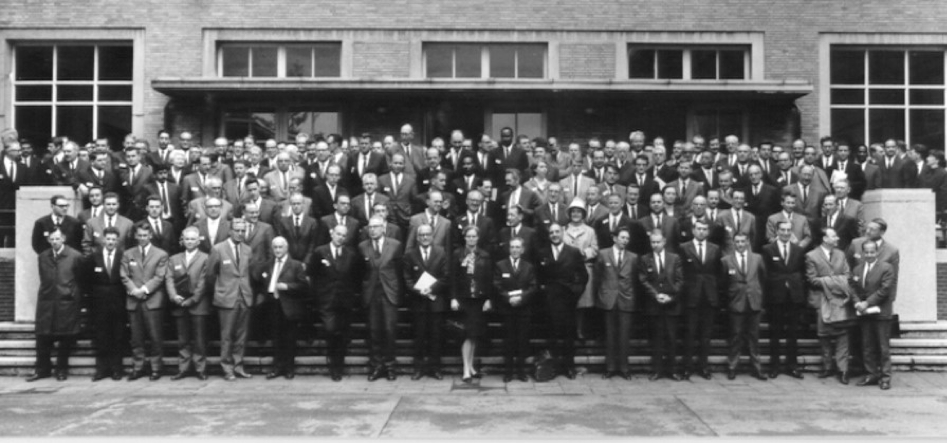Maybe the oldest symposium on crop protection in the world

The International Symposium on Crop protection (ISCP) is a yearly symposium organised at Ghent University in Belgium that focuses on new developments in all aspects of crop protection. As the 71st edition of this symposium is coming up in 2019, it is clear that this symposium with its long history has built up a unique position in the world. There is probably no other international symposium that has such a long tradition of science communication in the crop protection domain dating back to 1948. Next year, the 71st edition will be organised as a joined venture with the IUPAC 2019 International Conference on Crop Protection Chemistry.
The history of the symposium goes back to 1948, when two professors got the idea to hold a yearly symposium in Ghent. The goal was to create a close cooperation between practice and research, in all scientific disciplines concerned, such as the study of insects (entomology), plant pathogens (phytopathology), chemistry and physico-chemistry. Every symposium normally consists of a plenary session with two or three invited international speakers and several parallel sessions dealing with various crop protection aspects. Usually the symposium attracts on average 400 participants from around 30 countries worldwide.
According to the tradition, the event always takes place in May and lasts only one day. “When I was still a student at Ghent University, the event was held at the beginning of May and was a holiday for the entire faculty of bioscience engineering. Only the people who were involved in the actual organisation had to work that day”, says Prof. Pieter Spanoghe, who leads the current organisation. Now, the entire faculty no longer has a day off and the date shifted to the end of May, which means that in 2019 it will coincide with the IUPAC-congress.
The first symposium was held in 1948 in Ghent. At that time 17 presentations were given, which were in Dutch and French. The second edition was postponed to 1950 so it could coincide with the famous flower exhibition “the Floraliën”. At this edition, the first English presentation was given. From the third edition on, presentations were also given in German. During the following years the number of presentations kept increasing and from the sixth edition onwards presentations were given in parallel sessions. Over the decades the importance of English as symposium language kept increasing and nowadays the symposium presentations are exclusively given in English. However, not only the language has changed. “It used to be a very important international congress with almost exclusively important experts from industry and academic institutions. In contrast, now the participants also include a lot of young researchers”, explains Prof. Spanoghe.
For many years, the ISCP and the BCPC’s (British Crop Production Council) symposium were the place to be. The success of the ISCP symposium can be explained by the fact that it is a yearly event in which many experts can meet and greet each other. But also, that the content and the topics have evolved together with the current developments and opinions on crop protection. The focus used to be mainly on chemical crop protection, but now it covers every aspect of Integrated Pest Management. “This adaptation is crucial! Since the funding for research on chemical crop protection is decreasing and research on the identification of pests and biological alternatives becomes more and more important”, says Prof. Spanoghe. For many PhD students it was and still is their first step in science communication. This means that the public at the congress exists for an important part of young people, which also makes this event unique. The focus on the next-generation is something that is shared with the IUPAC conference on crop protection chemistry.
The 71st ISCP takes place on 21 May 2019 and will be unique in the ISCP history, as it will be a joined venture with the global IUPAC conference on crop protection chemistry, which will be hosted in Ghent at the International Convention Centre (ICC). During this edition, the Symposium will focus on the biocontrol aspects of crop protection, such as microbial pesticides (bacteria, fungi and yeasts), biocontrol agents (natural enemies), biostimulants, detection and detection methods for pests and diseases and technologies based on insect behaviour modifying substances. For a conference that has stood the test of time, the nearby future looks promising.
Do you have a specific question for the ISCP secretary?
Contact: iscp@ugent.be or +32 (0)9 264 61 42

